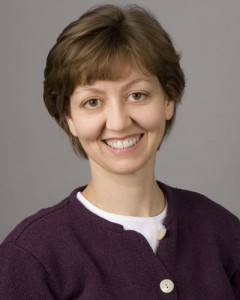Cornell, Coe share grant for scientific equipment
Cornell College and Coe College have jointly received a $10,000 Pittsburgh Conference Memorial National College Grant award to help purchase a new scientific instrument that will aid in a wide variety of experiments.

The grant was awarded jointly to the Coe and Cornell chemistry departments to be used toward the purchase of a portable X-ray fluorescence spectrometer. Although primarily used in chemistry, the instrument will be available for use by faculty and students in a variety of academic disciplines, including geology, art, archaeology, biology and physics.
The grant proposal, written by Cornell chemistry Professor Cynthia Strong and Coe chemistry Professor Martin St. Clair, was one of 13 selected for funding from 78 proposals received by the program. The new instrument will benefit approximately 265 students annually from both campuses, with several collaborative research projects planned.
With non-invasive capabilities, the instrument can be used in a simple “point and shoot” mode to conduct investigations in introductory laboratories. In intermediate and upper level courses, the instrument will lend itself to more sophisticated experiments including comparisons with other instrumental means of analysis, exploring different calibrations, solving matrix complications, and optimizing sample preparation. The spectrometer will also be used in outreach efforts to attract younger children to become interested in chemistry.
One example where the spectrometer can be used in a practical application is to analyze the lead in soil surrounding buildings where lead paint was recently removed. The spectrometer will allow the quick analysis of the elemental composition of solid samples ranging from paintings to bullets.
“We think it is important to introduce students early in their careers to the tools that chemists use,” said St. Clair. “By using real-life examples, students become more engaged with the concepts we teach in the class.”
Strong said that the spectrometer means that students from disciplines across campus can have access to state-of-the art equipment to help with their studies.
“We’re excited about the possibilities for investigations across disciplines,” Strong said. “Students will be able to apply chemistry to other fields such as art or environmental studies.”



